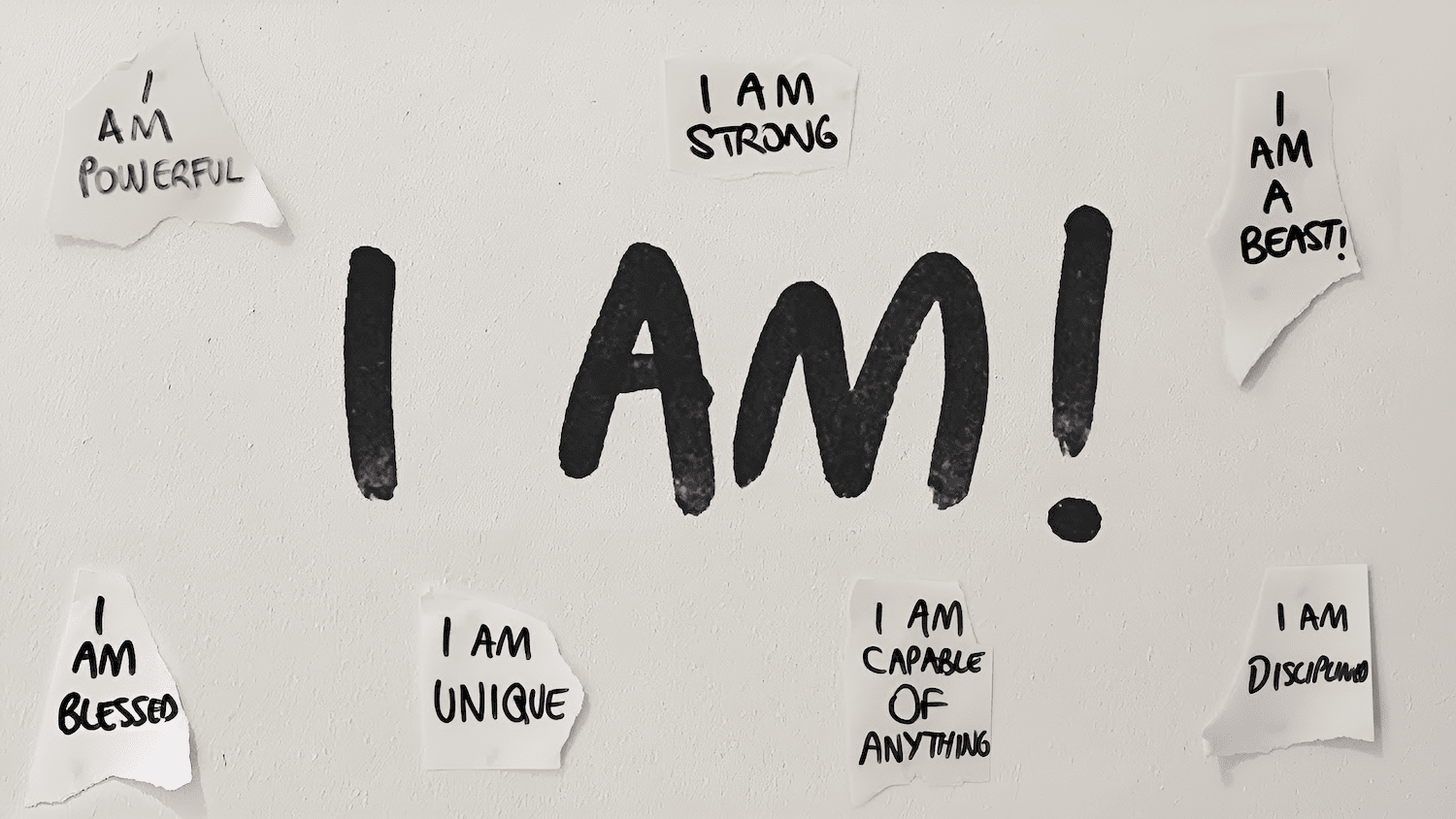Embracing Gratitude: How Saying "I Am Grateful" Transforms Your Life
Gratitude is more than just a fleeting feeling; it’s a transformative mindset that can significantly improve your mental, emotional, and physical well-being. By consciously expressing gratitude, you open the door to more fulfilling relationships, improved mental clarity, and a sense of purpose that drives lasting change in your life. Here, we explore the science, strategies, and stories that reveal the profound impact of gratitude.Gratitude: A Powerful Emotion
Gratitude is defined as a heartfelt acknowledgment of the positive aspects of life, whether they stem from relationships, experiences, or personal growth. It invites us to shift our focus from what we lack to what we have, encouraging mindfulness and appreciation. Gratitude goes beyond politeness; it roots itself deeply in our emotions, cultivating feelings of contentment, peace, and connection.

The Science Behind Being Thankful
Scientific studies consistently highlight gratitude’s positive effects on overall well-being. Research in psychology and neuroscience reveals that practicing gratitude activates the brain's reward center, releasing dopamine and serotonin—chemicals responsible for pleasure, satisfaction, and overall happiness.Studies conducted by Dr. Robert Emmons and Dr. Michael McCullough demonstrate that individuals who regularly practice gratitude experience lower levels of stress, anxiety, and depression. In addition, grateful individuals often enjoy better physical health, including improved sleep patterns and stronger immune systems.
How Saying "I Am Grateful" Affects Your Mental Health
Verbalizing gratitude has a powerful impact on mental well-being. When you say "I am grateful," you train your mind to focus on positivity rather than dwelling on negativity. This shift strengthens neural pathways that promote optimism and resilience.
Practicing gratitude can reduce symptoms of depression and anxiety by interrupting negative thought patterns. Moreover, by actively recognizing moments of gratitude, you reinforce feelings of self-worth and reduce feelings of isolation and loneliness.
The Impact of Gratitude on Relationships
Gratitude strengthens relationships by fostering empathy, trust, and appreciation. When you express gratitude to others, it reinforces their positive actions and motivates them to continue those behaviors. Couples who regularly share their appreciation report greater intimacy and relationship satisfaction.
In professional settings, gratitude creates a culture of respect and support, boosting teamwork and productivity. Expressing sincere thanks to colleagues builds stronger connections and encourages cooperation.
Cultivating a Grateful Mindset: Practical Techniques
Developing a grateful mindset requires conscious effort and consistent practice. Here are some proven techniques to help you embrace gratitude:
1. Gratitude Journaling: Write down three things you're grateful for each day to train your mind to focus on positivity.
2. Mindful Reflection: Set aside time to reflect on your day, identifying moments where you felt grateful.
3. Gratitude Letters: Write heartfelt letters expressing thanks to individuals who have positively impacted your life.
4. Positive Affirmations: Repeat statements like "I am grateful for the love and support in my life" to reinforce a grateful mindset.
5. Visualization: Imagine yourself surrounded by the things you are thankful for to amplify feelings of gratitude.
Daily Practices of Being Thankful
Incorporating gratitude into your daily routine can reshape your outlook on life. Here are simple ways to practice gratitude every day:
- Morning Gratitude Ritual: Begin each day by saying, "I am grateful for..." as you reflect on positive aspects of your life.
- Grateful Conversations: Incorporate gratitude into conversations by expressing appreciation for others' efforts or kindness.
- Mindful Eating: Pause before meals to acknowledge the effort that went into preparing your food.
- Evening Reflections: Before bedtime, reflect on three positive moments from your day.
- Gratitude Walks: While walking outdoors, intentionally focus on the beauty around you and express gratitude for nature's wonders.
The Role of Gratitude in Personal Development
Gratitude plays a pivotal role in personal growth by fostering self-awareness and emotional resilience. Individuals who practice gratitude are more likely to set meaningful goals and persist through challenges.
By adopting a grateful mindset, you become more adaptable, motivated, and open to new opportunities. Gratitude helps you appreciate progress rather than focusing solely on setbacks, promoting long-term growth and fulfillment.
I Am
Creating the life I love
Say your "I Am's" every day and watch your reality transform almost overnight.
Say Your I Am's
Transforming Challenges into Opportunities Through Gratitude
Gratitude has the power to turn adversity into personal growth. By shifting focus from "Why is this happening to me?" to "What can I learn from this experience?" you create opportunities for resilience and transformation.
Practicing gratitude during difficult times helps you identify strengths, resources, and support systems that may otherwise go unnoticed. By recognizing small victories, you build confidence to face larger obstacles with courage and optimism.
Inspiring Stories of Gratitude in Action
The transformative power of gratitude is best demonstrated through real-life experiences. People from diverse backgrounds have harnessed gratitude to overcome adversity, find meaning, and inspire positive change. Here are five powerful stories of individuals whose lives were transformed by embracing gratitude:
1. The Cancer Survivor: Finding Strength in Gratitude
When diagnosed with stage IV cancer, Emily felt overwhelmed with fear and uncertainty. Determined to maintain hope, she began a gratitude journal, recording three small blessings each day. Over time, Emily found herself focusing less on her illness and more on the moments of love, support, and beauty in her life. This simple practice not only improved her emotional well-being but also strengthened her relationships with family and friends. Inspired by her journey, Emily became an advocate for other cancer patients, encouraging them to embrace gratitude as a tool for resilience.
2. The Veteran's Journey: Overcoming PTSD Through Gratitude
After returning from active duty, James, a military veteran, faced severe post-traumatic stress disorder (PTSD). Nightmares and anxiety made it difficult for him to engage with loved ones. At the suggestion of his therapist, James began writing letters of gratitude to fellow veterans and people who had supported him. This practice helped James redirect his thoughts from past trauma to positive memories and meaningful connections. Inspired by his progress, James began volunteering at a veterans' support organization, where he encourages others to use gratitude as a tool for healing.
3. The Entrepreneur's Success: Building a Business with Gratitude
Sophia, an entrepreneur, faced mounting financial struggles after her startup failed. Frustrated and overwhelmed, she adopted a gratitude practice by intentionally thanking her mentors, employees, and loyal clients for their contributions. As her gratitude deepened, Sophia found renewed energy to rebuild her business. By focusing on relationships and fostering a culture of appreciation, she developed a thriving company that attracted like-minded partners and dedicated customers. Sophia credits gratitude for her company’s turnaround and now encourages other entrepreneurs to adopt the same mindset.
4. The Teacher's Impact: Transforming a Classroom with Gratitude
Mr. Harris, a high school teacher, struggled to engage students who lacked motivation. Seeking a new approach, he introduced a "Gratitude Wall" where students wrote notes about things they appreciated. Over time, students began sharing positive experiences about their peers, families, and teachers. This small initiative fostered kindness and improved student morale. By promoting gratitude in the classroom, Mr. Harris transformed the learning environment and witnessed significant improvements in student engagement and academic performance.
5. The Grieving Parent: Healing Through Gratitude
Linda, a mother who lost her teenage son in a car accident, struggled with immense grief. A counselor encouraged her to focus on the joyful memories she had shared with her son. Linda began writing gratitude letters to friends, family, and even medical staff who had supported her during her loss. This practice helped Linda find peace by celebrating her son’s life rather than focusing on her pain. Today, Linda volunteers with bereavement groups, sharing her story and teaching others how gratitude can be a powerful tool for healing.
These inspiring stories reveal how gratitude can unlock strength, resilience, and hope even in life’s most difficult moments. By shifting focus from hardship to appreciation, individuals can transform challenges into opportunities for growth and purpose.
The Lifelong Benefits of Saying "I Am Grateful" Every Day
The practice of expressing gratitude creates lasting benefits that enrich your entire life. By consistently saying, "I am grateful," you:
-
✔ Experience improved mental clarity and emotional stability.
-
✔ Develop stronger relationships built on trust and appreciation.
-
✔ Strengthen resilience during challenging times.
-
✔ Cultivate a sense of purpose and fulfillment.
-
✔ Enhance your overall health and well-being.
Embracing gratitude is a transformative choice that empowers you to see beauty in the ordinary and find strength in adversity. By adopting a grateful mindset and integrating thankfulness into your daily life, you unlock a powerful tool for personal growth, improved relationships, and lasting happiness.

